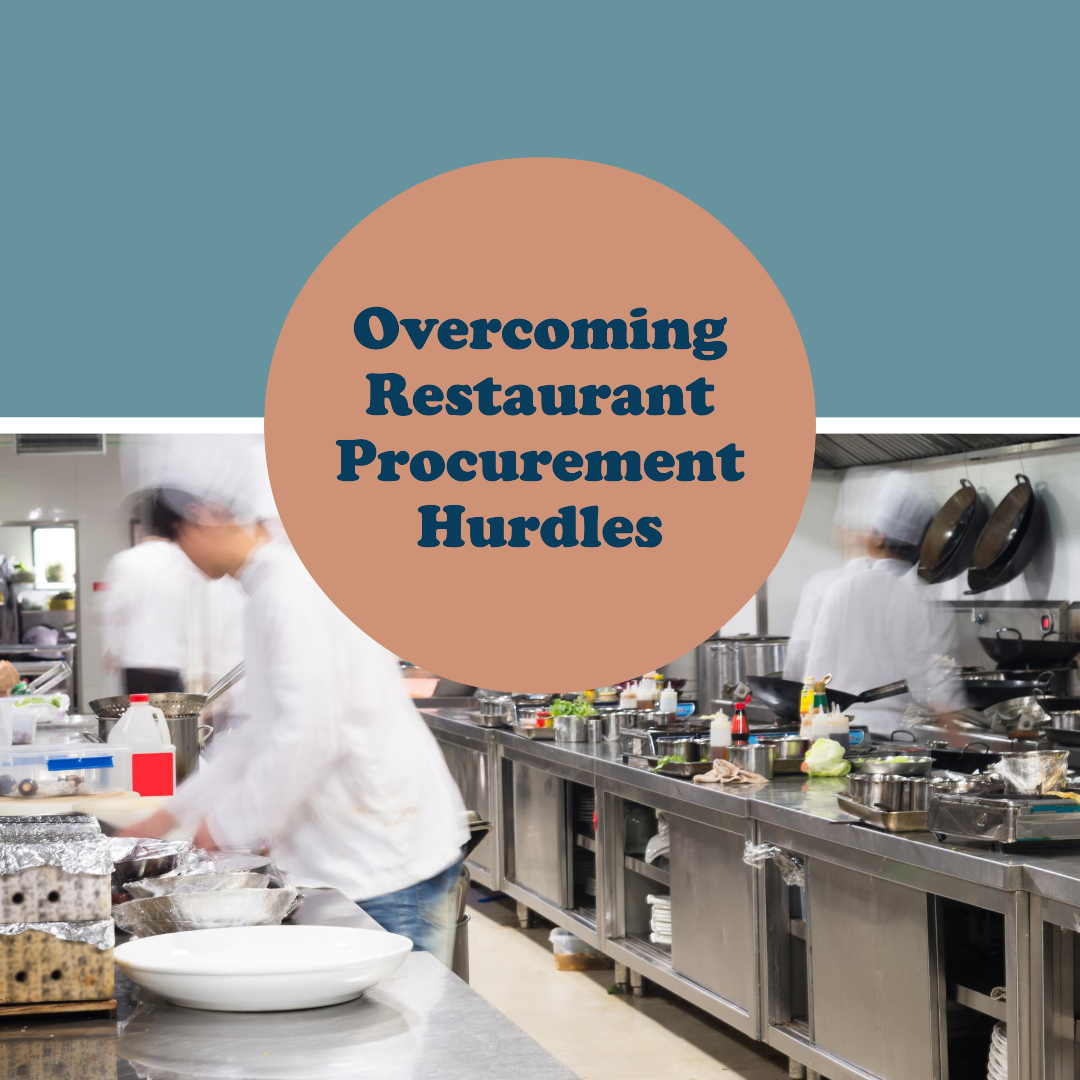
Every restaurant owner understands the significance of food costs, which strongly impact business success. Restaurant owners are always challenged to ensure top quality while minimizing expenses. While this is very important to grow your business, achieving it is equally challenging. Therefore, to make this possible, managing your procurement processes efficiently is crucial.
Many new restaurant owners or people with limited knowledge struggle with procurement management. Everything from overstocking your inventory to having limited information about the right suppliers can count as procurement mismanagement. Tracking stock and inventory are additional factors that further complicate procurement management.
Let’s study these issues in detail and explore the top restaurant procurement hurdles you must know.
6 Restaurant Procurement Issues You Should Know
With so many factors to manage, it’s common for restaurant owners to get overwhelmed. As a result, the chances of mismanagement are high, which can hinder the growth of your restaurant. Therefore, this article will illuminate the procurement pitfalls to avoid so you can run your business smoothly while saving money.
Here are 6 restaurant procurement hurdles you must know about.
1. Supply Chain Challenges
The first challenge that every restaurant owner encounters is unexpected supply chain problems. Such issues can overwhelm restaurant owners by leading to a forced shutdown of business operations. An example of this can be if your business mostly sells chicken and runs out of chicken.
This challenge is bound to occur because global events can massively influence a business’s supply chain. Whether related to weather-related disasters or any other environmental factor, anything can halt your supply chain. To address this problem, you can refer to restaurant consulting company Dubai to create a backup plan and prevent business interruption.
2. Ordering From Multiple Suppliers
Most restaurant owners think that the more suppliers they contract with, the more they benefit. However, this actually raises other challenges and makes it tough to diversify between your vendors. You will have a hard time managing the cost, quality, and quantity. In addition, it will increase the time spent on each vendor’s delivery schedules and paperwork.
In contrast, when you have a few suppliers to deal with, you get better visibility into your inventory. This allows you to get consistent with fewer products for a long time to better assess quality and compare prices. Also, you will have better flexibility to choose suppliers of your preference without being locked into multiple contracts.
3. Buying Low-Quality Products
Buying low-quality products may seem tempting to some restaurant owners, but it comes with countless drawbacks. While you may think you are doing your finances a favor, you are actually hurting them in the long run. For example, buying cheap products that come with short expiration dates or ones that spoil quickly will be thrown away.
As a result, you will waste your money and spend additional on restocking the inventory. The best way to overcome this challenge is to source your products from suppliers who promise quality at affordable rates. You can shortlist the best suppliers in your area and send the quotes that are profitable for your business.
Read also: Luxury Service Apartment for Rent in Gurgaon
4. Cost Changes
This is another major procurement issue that most restaurant owners can’t cope with. The cost of food and beverage items continually fluctuates. Inflation on certain items can significantly impact the profitability of your menu items. In such scenarios, most suppliers often lower the product quality to match or reduce the pricing.
Therefore, to address this challenge, you must ensure that your supplier promises the best quality in cost fluctuations. This will allow you to make your menu adjustments accordingly while maintaining the quality of your items.
5. Inefficient Budget Planning
Effective procurement management solely relies on proper budget planning. A well-planned budget is defined as one that takes everything into account, including the restaurant’s past spending patterns. Most restaurant owners run their businesses without fixing a budget, which leads to unnecessary items and overspending.
This is because when you don’t have an allocated budget to work with, it’s easy to overspend on supplies. Specifically, if you are dealing with multiple vendors or tend to purchase items in bulk. Therefore, it’s important to map out a proper budget for your procurement to ensure proper finance management.
6. Over-Purchasing
Another common issue in procurement management is over-purchasing while stocking your inventories. Most restaurant owners often buy items that currently have a massive price drop, which may seem tempting. Instead, this can lead to an overflow in your storage room and result in significant wastage.
Therefore, it’s important to assess your needs first and place orders accordingly to avoid over-purchasing. However, evaluating the needs can be a challenge for people with limited business experience. For this, you can seek assistance from the restaurant consulting company Dubai to manage your procurement effectively.
Read also: Navigating the Dynamics of the Construction Market
Are You Eager to Address Restaurant Procurement Challenges?
Efficiently managing restaurant procurement is the key to achieving your goals. You can lean on professional consultants to take care of all your procurement hurdles. Contact professionals now and let your business grow with better procurement management.
